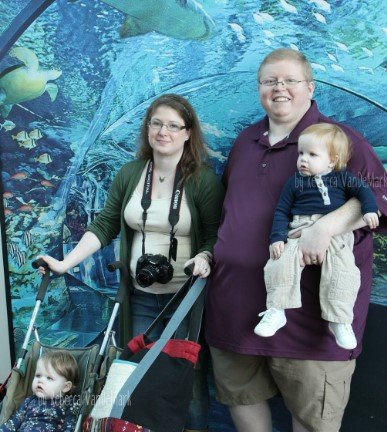The Georgia Aquarium in Atlanta has teamed up with ReBokeh Vision Technologies to make visits easier for people with low vision. This partnership, announced on August 20, 2025, lets guests use a free mobile app on site to see exhibits more clearly, marking the first such offering at any U.S. aquarium.
This move aims to open up the wonders of the ocean to everyone. By providing tools that adjust colors, contrast, and details through a smartphone, the aquarium addresses a key barrier for visually impaired visitors who want to enjoy sea life up close.
The Groundbreaking Partnership
Georgia Aquarium officials say this step builds on their long commitment to inclusion. Sam Herman, the director of guest programs, noted that the goal is to unlock the ocean for all. The app activates automatically when visitors enter the building, thanks to geofencing technology.
ReBokeh, based in Baltimore, was founded by Rebecca Rosenberg, who lives with low vision herself. She started the company to help others make the most of their remaining sight. This year, Forbes named her to its 30 Under 30 list for her work in accessibility tech.
The partnership comes at a time when public spaces are pushing for better access. Just months ago, Miami International Airport became the first airport worldwide to offer similar ReBokeh tools for low-vision travelers.

How the ReBokeh App Works
Users download the app on their own phones and get full access for free while at the aquarium. It uses augmented reality to overlay filters that boost visibility. For example, it can sharpen blurry edges or highlight colors in dim lighting.
The app also taps into artificial intelligence to describe scenes in real time. This helps with reading signs, menus, or spotting animals in tanks. It switches to the user’s preferred language based on phone settings, making it simple for international guests.
One key feature is its focus on functional vision. Most people with impairments still have some usable sight, and the app enhances that without replacing it. Early users at other sites report feeling more independent.
Tests show the tech improves detail recognition by up to 50 percent in low-light settings, based on company data from similar rollouts.
Benefits for Low-Vision Visitors
Imagine walking through the aquarium’s massive Ocean Voyager exhibit, home to whale sharks and manta rays. For someone with low vision, details might blur into shadows. The app changes that by letting users tweak settings to match their needs.
Parents with low vision can now join kids in spotting colorful fish or reading educational plaques. This boosts family outings and education. One visitor shared online that it made her first aquarium trip in years feel magical.
Beyond fun, it solves real problems. Low vision affects over 2 million Americans, per recent Centers for Disease Control and Prevention stats. Tools like this reduce isolation and encourage more people to explore public venues.
- Custom filters for color and contrast adjustment
- AI-powered real-time descriptions of exhibits
- Automatic language support for global users
- Geofencing for seamless on-site activation
Wider Impact on Accessibility
This initiative sets a new standard for aquariums nationwide. Other spots, like the Houston Museum of Natural Science, added ReBokeh tech earlier in 2025 to aid low-vision guests with exhibits.
Experts predict more venues will follow. The push aligns with growing awareness, including projects like Georgia Tech’s Accessible Aquarium effort, which uses sound and music for blind visitors.
On a broader scale, it ties into national trends. The Americans with Disabilities Act turned 35 in 2025, sparking fresh calls for tech-driven access in entertainment spots.
| Venue | Accessibility Feature | Launch Year | Key Benefit |
|---|---|---|---|
| Georgia Aquarium | ReBokeh App | 2025 | Visual enhancement for low-vision users |
| Houston Museum of Natural Science | ReBokeh Tech | 2025 | Improved exhibit viewing |
| Miami International Airport | ReBokeh Software | 2025 | Easier navigation for travelers |
| S.E.A. Aquarium (Singapore) | Audio Guides and Tactile Maps | 2024 | Multi-sensory access |
Ongoing Efforts at Georgia Aquarium
The aquarium has a track record of inclusion. For 20 years, it has offered sensory rooms, sign language tours, and wheelchair access. The new app adds to this list, focusing on vision needs.
Future plans include expanding the tech to virtual tours. Staff training ensures smooth support for app users. This reflects a shift toward personalized tech in public spaces.
Community feedback has been positive. Social media posts praise the move, with some calling it a game changer for inclusive travel.
Looking Ahead
As more places adopt similar tools, low-vision individuals gain freedom to explore. This could inspire zoos, museums, and parks to step up.
Share your thoughts on this accessibility boost in the comments below. Have you tried similar tech? Let us know, and pass this article along to spread the word.
